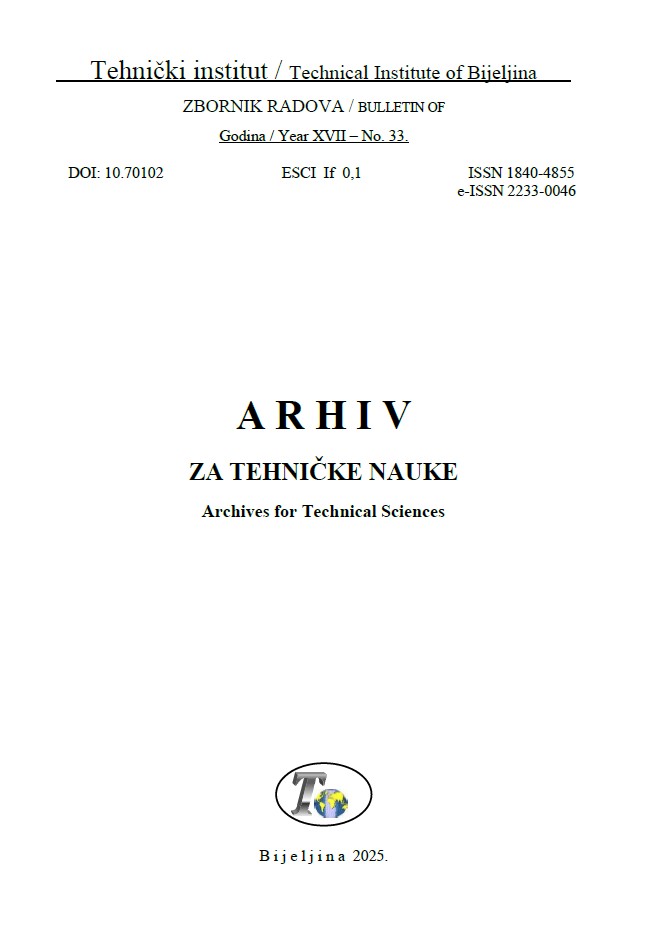AN APPROACH TOWARDS DIABETIC RETINOPATHY DETECTION AND ANALYSIS THROUGH COGNITIVE COMPUTING
Diabetes is a common chronic condition that significantly impacts patients' daily lives. Although it cannot be cured, if left unmanaged, diabetes can progressively damage vital organs. Without early and appropriate care, it may lead to multiple adverse effects. To ensure proper care, diabetic individuals typically require regular visits to healthca...
By B. Saratha, M S Radhika, V. Shenbaga Priya
EVALUATING THE EFFECTIVENESS OF PREDICTION TECHNIQUES FOR CYBERATTACKS: A COMPREHESIVE TAXONOMY
The rising threat of cyberattacks in today's society emphasizes the urgent need for improved methods to both detect and prevent these incidents. This paper focuses on assessing the effectiveness of various techniques for predicting cyberattacks. The DTCF taxonomy was proposed for predicting these attacks, considering datasets, techniques, challenge...
By Azhar F. Al-zubidi, Alaa Kadhim Farhan, Abeer Alsadoon
NONLINEAR STATIC ANALYSIS OF RCC SPACE FRAME ON SLOPING GROUNDS INCORPORATING SSI
This paper presents a comprehensive investigation into the seismic performance of a G+5 reinforced concrete spaceframe subjected to pushover analysis. The analysis incorporates the critical influence of soil-structure interaction on varying slope inclinations. A nonlinear static pushover method is utilized to examine the lateral loading streng...
By Tushar Golait, Neeraj Tiwari, Manjeet Singh Hora
THE IMPACT OF POLICY INTERVENTIONS ON WUA EFFICIENCY IN BUNDELKHAND: A DEA EVALUATION
Water efficiency in agriculture is a crucial measure of how effectively farmers use their most vital resource. In practical terms, it reveals how much applied water actually nourishes crops versus being lost to evaporation or runoff. In the Bundelkhand region of Uttar Pradesh, India, where water is incredibly scarce, making every drop count is cruc...
By Aakanksha Rawat, Mukul Kulshrestha
CYBERCRIME VULNERABILITY AMONG OLDER ADULTS IN MALAYSIA IN THE CONTEXT OF DIGITAL DECEPTION
This study explores the growing phenomenon of cybercrime targeting older adult individuals in Malaysia, a demographic increasingly susceptible due to factors such as limited digital literacy, social isolation, and perceived financial stability. Drawing upon Routine Activity Theory and Social Engineering Theory, the research investigates the situati...
By Kian-Lam Tan, Jayaeswari Sangaralingam, Lau Pei Mey, Premalatha Karupiah, Chen-Kim Lim
MEMS-ENABLED VIBRATION MONITORING AND DIAGNOSTIC EVALUATION FOR LONG-TERM HEALTH ASSESSMENT OF SWARNAMUKHI AND BHAKTA KANNAPPA SETHU BRIDGES IN SRIKALAHASTI
This study presents a year-long vibration-based structural health monitoring (SHM) of the Swarnamukhi River Bridge and Bhakta Kannappa Sethu Bridge using a MEMS accelerometer integrated with a low-cost microcontroller system. The monthly dynamic response parameters of acceleration, displacement, frequency, and velocity were monitored from June 2024...
By K. Asha Latha, K. Narasimhulu
EVALUATING THE EFFECT OF PARTICIPATORY URBAN PLANNING ON COMMUNITY WELL-BEING AND QUALITY OF LIFE
This study aimed to evaluate the impact of participatory urban planning on community well-being and quality of life. Urban planning is done to transform urban areas into sustainable cities with adequate open spaces and many features of smart cities. To achieve successful urban planning, active and involved participation of the stakeholders is neces...
By Ammar A Naji
AREA-AWARE ADAPTIVE IMAGE COMPRESSION USING DUAL- BACKGROUND CLASSIFICATION FOR OPTIMIZED DATA PRESERVATION AND QUALITY ENHANCEMENT
In the current era of data-intensive applications, including OTT services, IoT, and autonomous systems, efficient image compression is indispensable in order to minimize bandwidth consumption while preserving visual quality. Conventional compression techniques frequently fail to satisfactorily balance compression ratios and the preservation of crit...
By K. Subba Reddy, R. Arshiya
A COMPARATIVE STUDY OF ADVANCED CONTROL STRATEGIES FOR INTERLINK CONVERTERS IN HYBRID RENEWABLE ENERGY MICROGRIDS
This paper derives a novel direct model predictive based power controller (DMPPC) for renewable energy systems (RES) to address voltage fluctuations caused by varying power demands and renewable source outputs. This method utilizes the bi-directional DC-DC converter in the Battery Energy Storage (BES) System to level the renewable energy output, al...
By P. Sai Sampath Kumar, P. Suresh, D. Lenine
MAPPING MENTAL HEALTH LITERACY ACROSS VARIED PROFESSIONS AND ITS FAR-REACHING IMPLICATIONS
Background Mental health is regarded as the core component of a person's health. India has a burden of 2442 disability-adjusted life years per 100,000 population imputable to mental health disorders, according to the WHO. The age-standardized suicide rate is 21.1 per 100,000 population. The estimated economic cost of mental dis...
By Farida Virani, G. Amutha, M. Kotteeswaran, R. Priyadharshini, A. Narmadha, B. Kalaiyarasan, Arun Raaza






